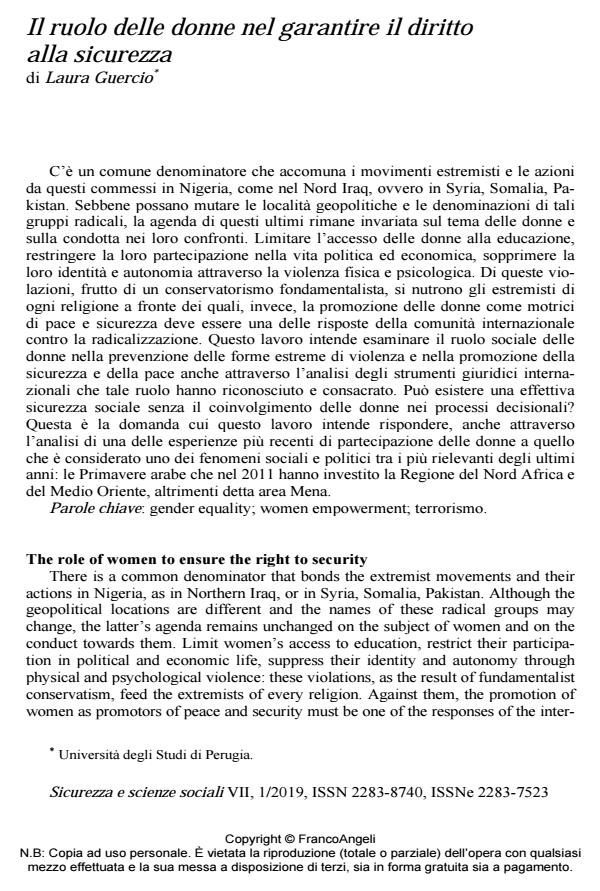The role of women to ensure the right to security
Journal title SICUREZZA E SCIENZE SOCIALI
Author/s Laura Guercio
Publishing Year 2019 Issue 2019/1
Language Italian Pages 12 P. 113-124 File size 194 KB
DOI 10.3280/SISS2019-001011
DOI is like a bar code for intellectual property: to have more infomation
click here
Below, you can see the article first page
If you want to buy this article in PDF format, you can do it, following the instructions to buy download credits

FrancoAngeli is member of Publishers International Linking Association, Inc (PILA), a not-for-profit association which run the CrossRef service enabling links to and from online scholarly content.
There is a common denominator that bonds the extremist movements and their actions in Nigeria, as in Northern Iraq, or in Syria, Somalia, Pakistan. Although the geopolitical locations are different and the names of these radical groups may change, the latter’s agenda remains unchanged on the subject of women and on the conduct towards them. Limit women’s access to education, restrict their participation in political and economic life, suppress their identity and autonomy through physical and psychological violence: these violations, as the result of fundamentalist conservatism, feed the extremists of every religion. Against them, the promotion of women as promotors of peace and security must be one of the responses of the international community against radicalization. This paper intends to examine the social role of women in the prevention of extreme forms of violence and in the promotion of security and peace through the international legal instruments that recognize and consecrate this relevant role. Can social security effectively exist without women participation at decisional levels? This is the focus that this work aims at analyzing, also considering the recent experience of women participation in one of the most relevant sociological and political phenomenon occurred in the last years: the 2011 Arab Springs in the North Africa and Middle East Region, shortly called Mena Region.
Keywords: Gender equality; women empowerment; terrorism.
Laura Guercio, Il ruolo delle donne nel garantire il diritto alla sicurezza in "SICUREZZA E SCIENZE SOCIALI" 1/2019, pp 113-124, DOI: 10.3280/SISS2019-001011